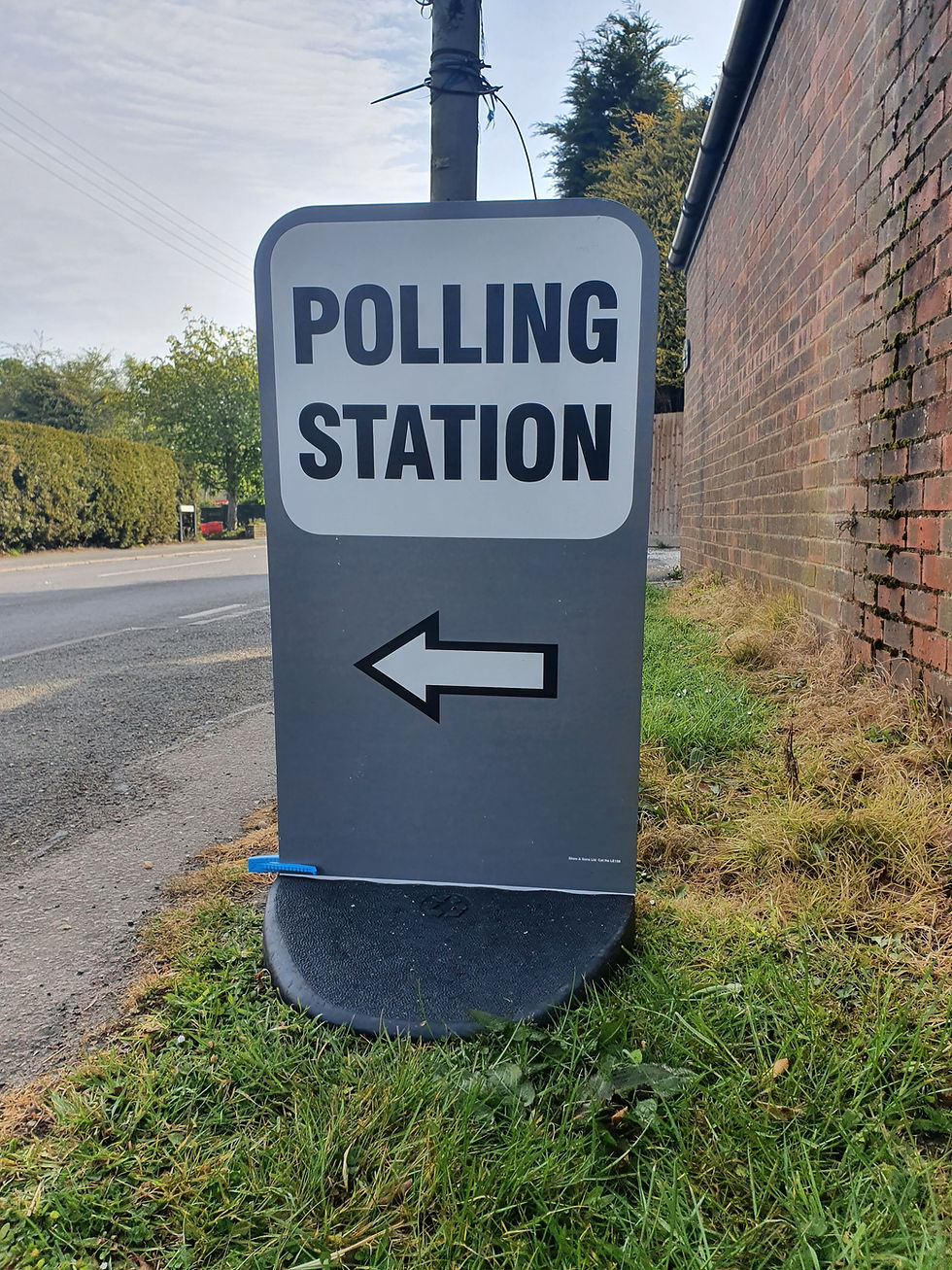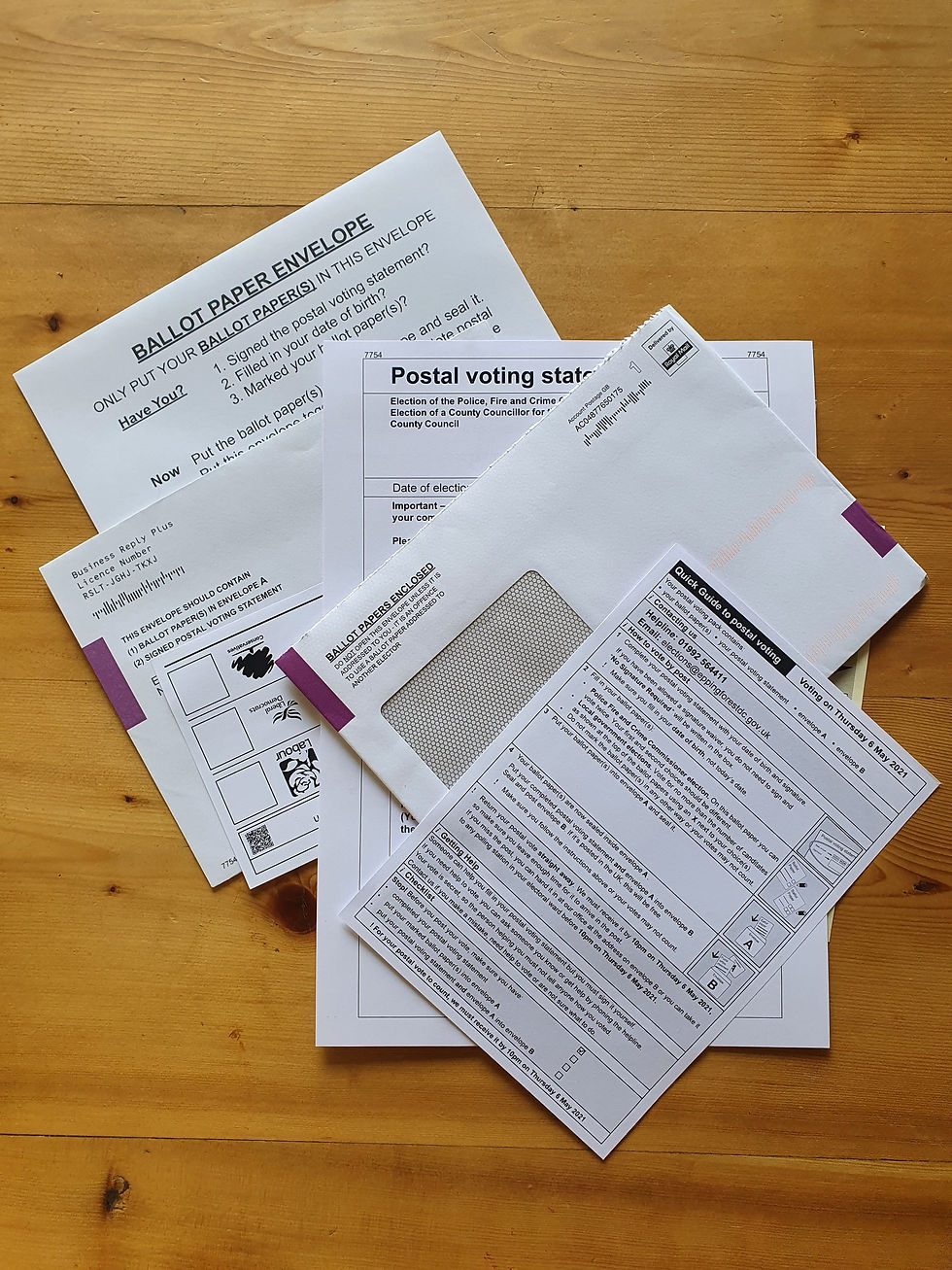In Democracy We Trust
- Vijay Krishnarayan

- May 6, 2021
- 4 min read

Democracy in the United Kingdom has come under scrutiny domestically. Internationally some still see the UK as providing a standard – not just for parliamentary processes but for the underpinning local institutions and processes that make up the democratic ecosystem. I was asked how the UK experience of participatory democracy could benchmark good practice in Morocco for the TASHAROC[1] programme. The particular interest in strengthening regional structures as facilitators of civic participation required a focus on local government. For comparison with the Kingdom of Morocco, I focussed on England.
As I reviewed the practice of participatory democracy, I was reminded of the importance of citizen trust in institutions. The abstract contract between citizens consenting to be governed and those who govern presumes that political leaders and institutions act in good faith. This contract has been fraying at the edges for the past 20 years in most post-industrial countries. The Edelman Trust Barometer annually surveys trust and credibility in major institutions (government, business, media, and NGOs) in 28 countries. Of those, the UK ranked among the lowest in terms of trust. In 2021 only Japan and Russia fared worse.
In the UK, near universal access to the internet has affected how citizens engage with each other and institutions. It has had an impact on how local government engages with citizens. The coronavirus pandemic has accelerated the tendency to transact all local government business via the internet.
Technology has had an impact on citizen engagement. Participation increasingly engages directly with individuals rather than through community groups, for example, through online petitions and consultations through surveys. While the internet can help strengthen a culture of democracy it cannot replace the complex interactions and negotiations between stakeholders in the governance terrain. Indeed, the internet is increasingly seen as a threat to democracy. Releasing the 2021 Edelman Index, Richard Edelman, CEO of Edelman, said: “This is the era of information bankruptcy. We’ve been lied to by those in charge, and media sources are seen as politicized and bias. The result is a lack of quality information and increased divisiveness.”

Without trust between stakeholders, participatory democracy is impossible because it is a joint enterprise. At a local level, I found examples where trust had been built by working through respected intermediaries. For example, the 2019 Greater Cambridge Citizens’ Assembly was run by Involve – the UK-wide public participation charity. Shared Future - a Community Interest Company based in the North West of England ran the Leeds Climate Change Citizens’ Jury in the same year.
Another approach to fostering trust and confidence in processes is to establish independent commissions that deliberate on particular issues or challenges. These commissions hear evidence from specialists and members of the public and produce an independent perspective to a local authority (e.g., Bristol Women’s Commission). These examples show that local government recognises the need to bolster citizen trust in democratic processes.
Politically there is an increasing awareness of the need for local government to shift from service provider to enabler of citizen self-help initiatives. Practically this shift has been necessitated by a drastic reduction in municipal budgets over the past 13 years.
This has seen a change in the way local government is conceptualising participatory democracy. Instead of consulting a local population on a particular issue, the trend is towards providing spaces for public deliberation. There is increasing evidence of solutions being “co-created” and authority being shared between major stakeholder groups. These changes (even if symbolic) signal an intent to establish a more equal relationship between local government and other stakeholders.
The success of more deliberative participatory initiatives by definition depends on an informed citizenry. I found that structures established to enable consultation and dialogue are likely to be dominated by citizen elites that are aware of the benefits of participation or are familiar with institutional processes. To broaden participation there is a need to meet people where they are and draw on existing and residual capacities. For example, in the London Borough of Barking and Dagenham, the council recognised the need to change its relationship with residents and started by trying different ways of working with residents and partners. This included the Every One Every Day programme developed and delivered in partnership with Participatory City.
When we think about building a culture of participatory democracy it is important to recognise that this starts from the bottom up and it requires trust and infrastructure.
A centrally driven policy narrative that endorses civic engagement will not translate into implementation if local institutions cannot engage. The contribution of local institutions to civic engagement is determined in part by the relationship they enjoy with citizens. Local government and the voluntary sector are not immune from the pervasive lack of trust in democratic institutions.
Local government in England has traditionally supported the development of an independent and enabling network of organisations, which enabled civic participation. This voluntary sector infrastructure[2] comprises umbrella groups and advice centres, which strengthen community organisations and inform citizen participation. These are the agencies that add value to the work of individual community organisations and local associations, which form an important part of the UK’s governance terrain. They are grant funded by local government to deliver services and advocacy as public goods but the sector has been dramatically cut back over the past 15 years[3]. To establish and deepen a culture of participatory democracy, local government needs to invest in civic infrastructure.
[1] The years since the 2011 constitutional reforms have seen Morocco follow through on a commitment to decentralisation and civic participation. There is an intent to decentralise administrative structures, devolve policy making to local government and encourage active civic participation. The TASHAROC programme (funded by the FCDO and implemented by DAI) aimed to strengthen political representation and citizen engagement in the northern Tangier-Tétouan-Al Hoceima region.
[2] In the UK, the term voluntary sector is used to describe civil society organisations, including NGOs, community-based organisations
[3] https://www.civilsociety.co.uk/voices/ed-mayo-it-is-a-word-that-government-and-funders-have-avoided-for-year-infrastructure.html




Comments